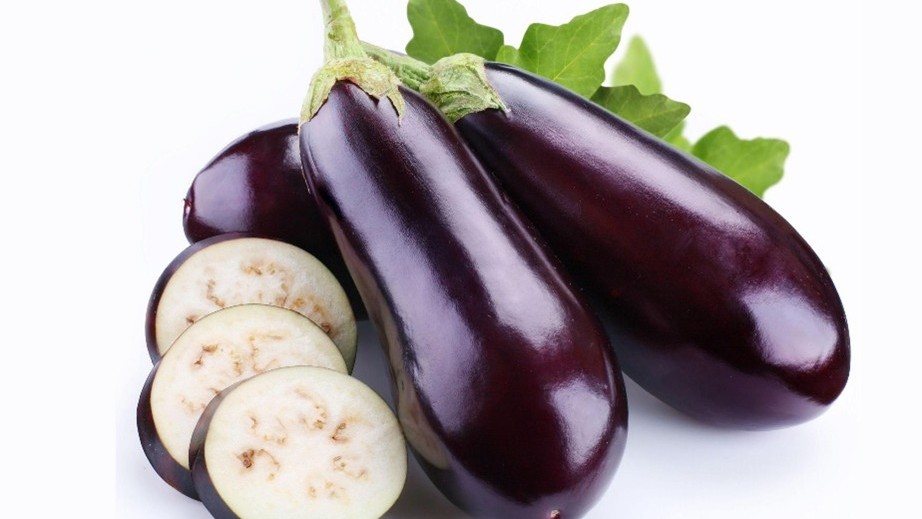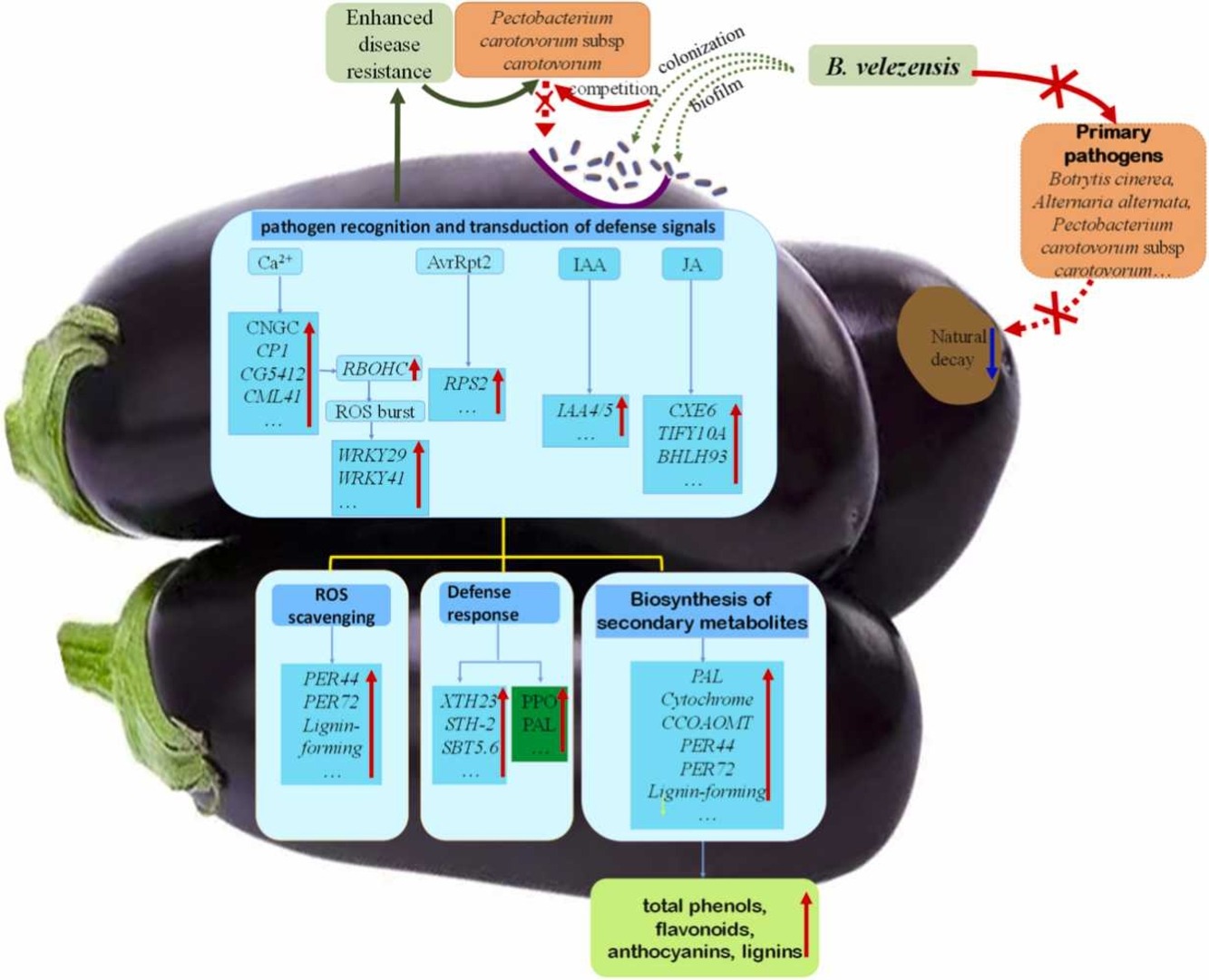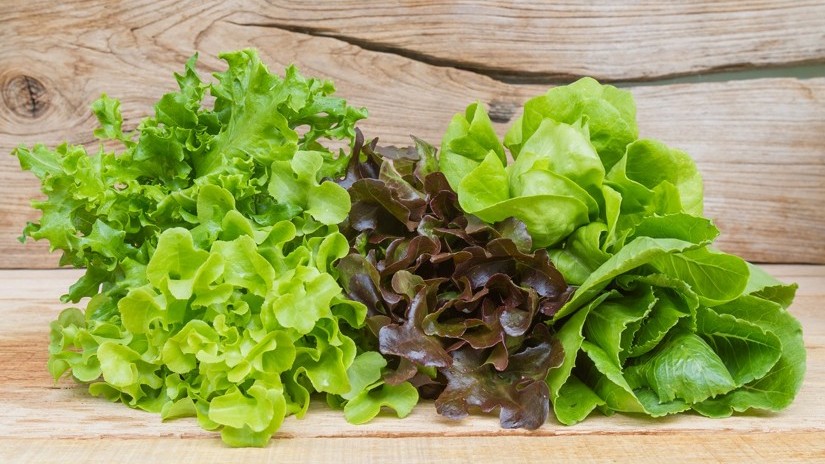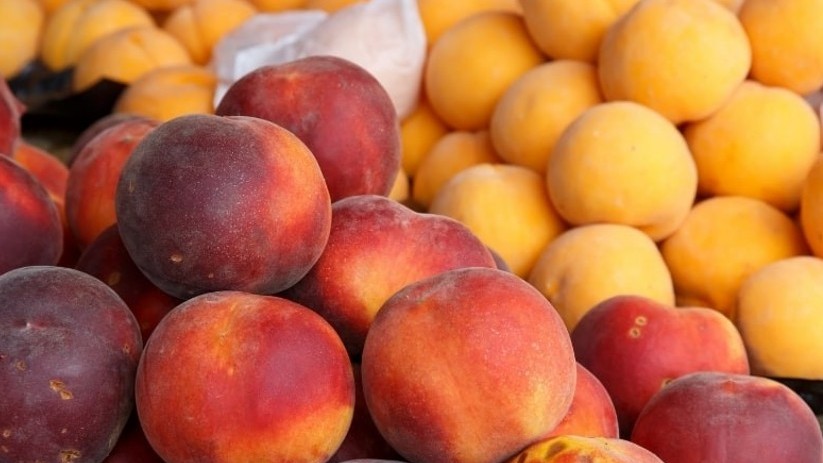News
Bacillus velezensis as a biological control agent for postharvest diseases in eggplant
B. velezensis controls various bacteria and fungi responsible for postharvest disorders through different mechanisms that act directly or indirectly on the pathogens

Eggplant (Solanum melongena L., family Solanaceae) is a vegetable appreciated worldwide for its richness in flavonoids and other antioxidant compounds.
However, due to inadequate postharvest storage conditions, these fruits are vulnerable to pathogen invasion, resulting in quality deterioration and significant economic losses.
For example, it is highly susceptible to soft rot caused by the pathogenic bacterium Pectobacterium carotovorum (Gram-negative), which develops rapidly and leads to severe tissue breakdown.
In addition, Botrytis cinerea and Alternaria alternata are major fungal pathogens that also cause acute postharvest decay in eggplants.
Currently, synthetic bactericides and fungicides are commonly applied to control these diseases, but their prolonged use can damage soil microbiota, leave residual deposits, pose potential health risks to consumers, and promote the selection of resistant pathogens.
Antagonistic bacteria: a tool for biological control
In recent decades, many researchers have emphasized biological control as a safe and environmentally friendly approach to managing diseases in fruits and vegetables during the postharvest period.
A wide variety of antagonistic microorganisms, including fungi, yeasts, and bacteria, have been used to counteract pathogen development, offering a highly effective and sustainable strategy that benefits both health and the ecosystem.
In particular, interest in antagonistic bacteria is growing due to their wide distribution and high tolerance. The induction of host resistance by antagonistic bacteria is crucial for disease suppression and the overall success of biocontrol.
The analysis of biochemical changes, such as defensive enzyme activity, along with gene expression variations revealed through transcriptomic studies, are currently the most widely used methods to investigate host resistance induced by antagonistic microorganisms.
Induction of expression of defense-related genes
For example, Bacillus velezensis has been shown to enhance pepper resistance against certain diseases by inducing the expression of defense-related genes, increasing the biosynthesis and enzymatic activity associated with this process.
Similarly, treating pears with Bacillus subtilis results in the upregulation of genes linked to the synthesis of flavonoids, waxes, and carotenoids, as well as pathways involved in plant–pathogen interactions.
It also boosts the activity of enzymes such as superoxide dismutase, catalase, and peroxidase, thereby improving disease resistance in the fruit.
Broad-spectrum control
Currently, most research on biological control of postharvest diseases in fruits and vegetables focuses on managing a single disease.
However, postharvest produce is often affected by multiple pathogens, resulting in a combination of diseases such as soft rot, black spot, and gray mold.
Therefore, broad-spectrum control is essential for antagonistic microorganisms to effectively manage major postharvest diseases in fruits and vegetables.
B. velezensis controls different types of rot through multiple mechanisms
A recent study demonstrated the significant effectiveness of B. velezensis in controlling soft rot in postharvest eggplants.
This bacterium directly inhibits P. carotovorum subsp. carotovorum through the secretion of cyclic lipopeptides and enhances the ability of eggplant tissue to eliminate reactive oxygen species (ROS).
The results also showed that B. velezensis is capable of inhibiting key eggplant pathogens such as Botrytis cinerea and Alternaria alternata. The effective formation of biofilms by B. velezensis facilitates its colonization of the fruit, contributing to disease control.
More importantly, this antagonistic bacterium significantly reduces the natural decay rate of eggplants.
Biochemical analyses and transcriptomic studies revealed that the application of B. velezensis results in the upregulation of genes involved in Ca²⁺ signaling, plant hormone signaling, and AvrRpt2-mediated bacterial signaling.
Additionally, it triggers the expression of genes associated with ROS detoxification and other defense responses, and enhances the activity of key defensive enzymes.
The treatment also activates genes involved in the synthesis of resistance-related secondary metabolites such as lignins, flavonoids, and anthocyanins.
This study provides valuable insight into the complex mechanisms by which antagonists like B. velezensis control postharvest diseases in eggplant and paves the way for developing effective biocontrol strategies.
*AvrRpt2 is an effector protein produced by the bacterium Pseudomonas syringae that plays a dual role in activating plant resistance and promoting virulence. It is recognized by the resistance protein RPS2 in susceptible plants, which triggers a defense response. At the same time, AvrRpt2 also enhances the bacterium’s ability to infect the plant, acting as a virulence factor.

Graphical summary adapted from Zhang, X. et al., 2025
Sources
Zhang, X.; Wang, J.; Xin, Y.; Godana, E. A.; Dhanasekaran, S.; Luo, R.; Li, J.; Zhao, L.; Zhang, H. (2025).
Exploring the biocontrol performance of Bacillus velezensis against postharvest diseases of eggplants and the underlying action mechanisms in soft rot management.
Postharvest Biology and Technology, 227: 113556.
Image
https://www.gastronomiavasca.net/en/gastro/glossary/berenjena (Accessed: 16/07/2025)













